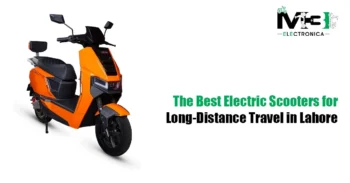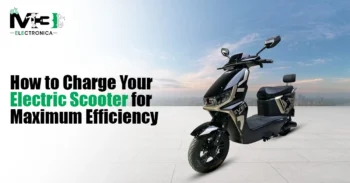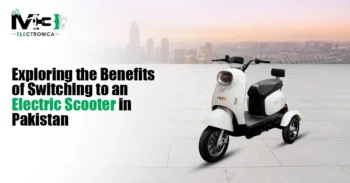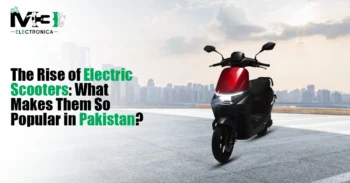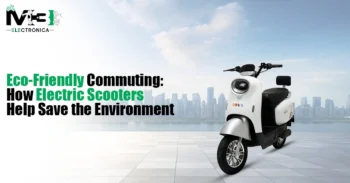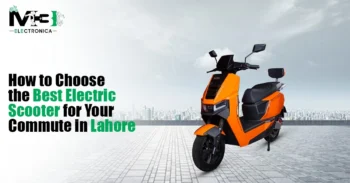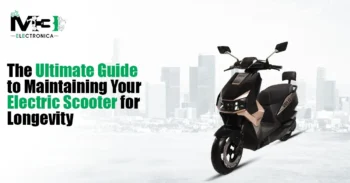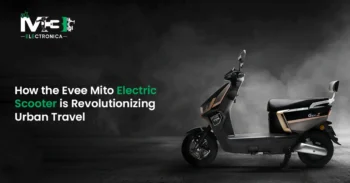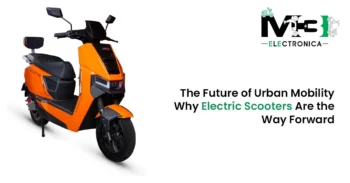What Pakistani Traffic Laws Apply to E-Scooters? A Complete Legal Breakdown
Electric scooters are quickly becoming a go-to mode of transport in Pakistan’s urban centers — offering a smart, eco-friendly, and budget-conscious alternative to traditional bikes. But as their popularity rises, so does confusion around legality. What Pakistani traffic laws apply to e-scooters? Are they treated like motorbikes? Do you need a license? Can you ride one on the main road?
If you’re planning to ride — or sell — an e-scooter in Pakistan, this guide breaks down everything you need to know about legal requirements, traffic regulations, and safe usage.
The Legal Grey Area: Why There’s Confusion
Electric scooters (also known as e-scooters or EV bikes) fall somewhere between a bicycle and a motorbike — and that’s where things get legally fuzzy in Pakistan. Unlike cars or motorcycles, electric scooters are relatively new to Pakistani roads, and current traffic laws don’t always clearly define their category.
So, what happens? Provinces like Punjab, Sindh, and KP often default to existing motor vehicle laws, applying them based on factors like speed, power (wattage), and usage.
Key Pakistani Traffic Laws That Apply to E-Scooters
1. Motor Vehicle Ordinance, 1965 (as amended)
This is the primary legal framework for regulating vehicles in Pakistan. It defines what qualifies as a motor vehicle — and many high-speed e-scooters fall under this definition if they:
- Have motors exceeding 500 watts, or
- Reach speeds above 25 km/h
In such cases, the e-scooter is considered a motorcycle equivalent and must follow all applicable laws.
2. Driving License Requirement
Depending on your scooter’s specifications:
- Low-speed e-scooters (below 25 km/h): No license typically required
- High-speed e-scooters (above 25 km/h): Valid motorcycle license (M/Cycle) is mandatory
🔎 Expert Tip: Always verify the motor power and speed before purchase. If it’s powerful enough to be roadworthy, assume it needs registration and a license.
3. Registration & Number Plate
If your e-scooter is categorized as a motor vehicle, it must be registered with the Excise & Taxation Office, just like a standard bike. You’ll need:
- CNIC
- Purchase invoice
- Customs clearance (if imported)
- Filled application form
You’ll then be issued a number plate and registration card.
4. Helmet & Safety Laws
Wearing a helmet is legally mandatory when riding registered two-wheelers — and this includes high-speed electric scooters. Even if your scooter is exempt from registration, wearing a helmet is always strongly recommended for safety.
5. Road Usage Regulations
You can ride e-scooters on most public roads — except:
- Highways or motorways
- Overhead bridges and underpasses
- Footpaths or pedestrian-only zones
Like motorcycles, e-scooter riders are expected to follow standard traffic rules: obey signals, avoid riding against traffic, and maintain lane discipline.
Challenges in Law Enforcement
While laws exist, enforcement varies by city and province. In some areas, traffic police may overlook minor violations due to unclear rules. However, as e-scooters become more mainstream, stricter enforcement is inevitable.
That’s why riders should self-regulate by staying updated and following all standard traffic practices — especially in cities like Lahore, Karachi, and Islamabad, where smart mobility is growing fast.
FAQs About E-Scooter Laws in Pakistan
Q1: Are electric scooters allowed on main roads?
Yes — if the scooter is capable of riding at standard speeds (25+ km/h) and you have a license and registration, you can use it on most city roads.
Q2: Do police fine unregistered e-scooters?
In major cities, yes. If the scooter exceeds regulated limits (speed or power), traffic police can stop you and issue a fine or even impound the scooter.
Q3: Can I ride my e-scooter without a helmet?
Legally, you must wear a helmet if the scooter is registered. Even if it’s not, helmets are highly recommended for personal safety.
Conclusion: Know the Law Before You Ride
So, what Pakistani traffic laws apply to e-scooters? In short: If your scooter is slow and low-power, you might be exempt from licensing and registration. But for anything above that, you’ll need to treat it like a motorcycle — license, helmet, registration, and all.
With the right knowledge, electric scooters can be an amazing addition to your daily routine — safe, cost-effective, and eco-friendly. Just make sure you’re riding within the law.
Ready to Ride Smart?
If you’re considering buying an e-scooter, ask the dealer whether it needs a license or registration. Want expert help? Visit M3 Electronica — your go-to destination for licensed, legal electric scooters in Pakistan.
Still unsure? Drop your questions in the comments below — or contact your local traffic authority for clarification. Safe riding! 🛵✅


